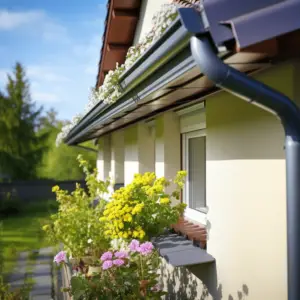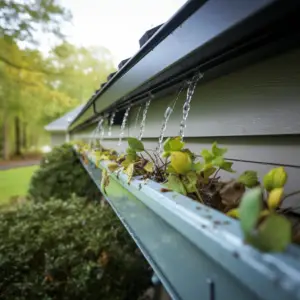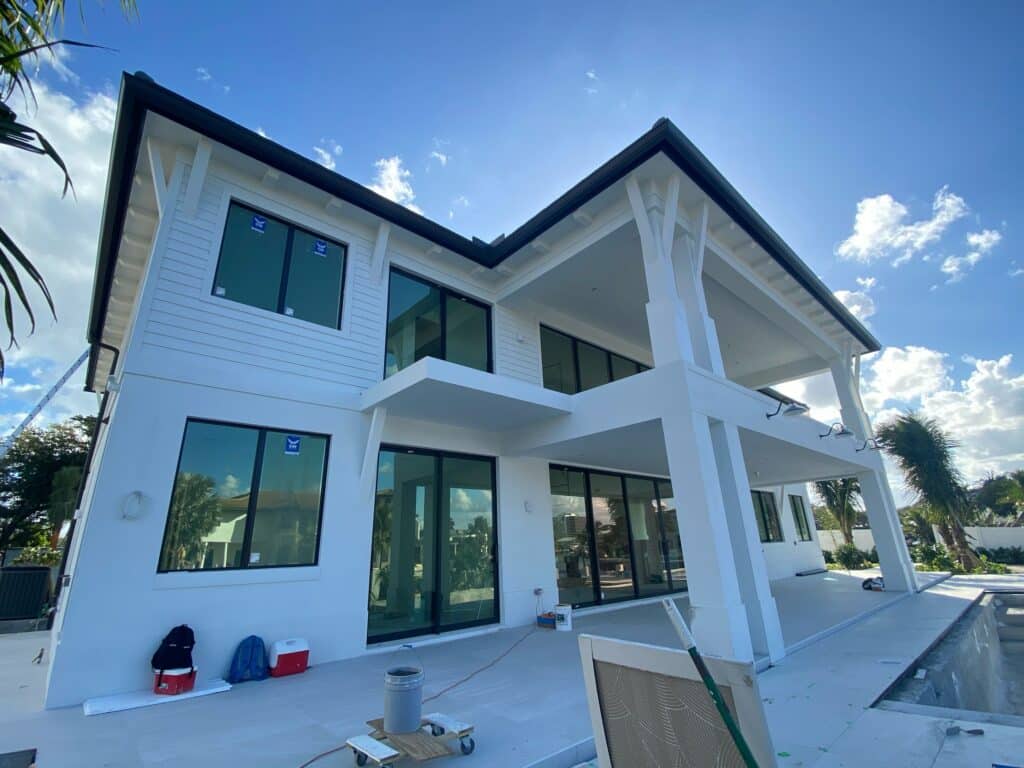Installing Gutters , A house should have gutters to protect it from water damage, so the question of how long a house can go without gutters is dependent on how much water damage you are willing to sustain to the structure.
Some houses don’t have gutters and don’t need gutters installed.
Homes older than 75 years rarely have gutters since gutters first appeared in home construction in the mid-1900s. These homes could be fitted with gutters if rainwater management is proving necessary.
Homes in largely sunny and dry areas are seldom constructed with gutters. The sporadic nature of rainfall in these areas makes it unnecessary to install gutters. There are, however, other strategies used in such areas that are more efficient in managing floods and heavy rain the few times they occur.
If your roof has a sufficient enough allowance that rainwater does not pool around the house or leech directly into the ground on which the house is constructed. Even this allowance does not sufficiently protect the house from water damage.
In other words, if you live in an area where rainfall is reliable, consistent, and at times heavy and destructive, you must install gutters if you do not have them. Gutters protect the integrity of your home and the surrounding environment from the following;
- Basement flooding
- Damage to the foundation
- Water damage to the exterior of your home
- Formation of standing pools and troughs
- Damage to the landscaping around your home
Table of Contents
Basement flooding

This is a serious problem for homeowners. Water damage to things stored in a flooded basement is expensive and may require disposal.
If there are no structural or architectural difficulties that could flood the basement, gutters carry huge amounts of rainwater away from the house and down a spout or drainage channel. The size, slope, and efficiency of your roof and gutters may deflect up to 80% of precipitation away from your property, preventing water damage.
Damage to the foundation
Rainwater only overflows when the ground is saturated and cannot absorb more. Water will soak through your foundation if this much leaches into the soil supporting your property. Your home will be structurally compromised, endangering your family.
Gutters direct water away from the ground on which your home rests protecting the foundation from water damage.
Water damage to the exterior of your home
If your gutter system fails, rainwater will surge against your home’s sides and walls, stripping paint, spreading mold and mildew, and degrading the outside.
The warm months will dry the walls and cause fissures. Overall, the exterior of your house will begin to fall apart, and if unchecked, it may worsen, causing wall crumbling.
Gutters prevent this and water damage of this kind is very rare even in areas where rainfall is common and at times heavy. A properly installed gutter system is essential to prevent damage to your house.
Formation of standing pools and troughs
As rainwater falls to the ground from the roof of your home, it erodes the soil around the house and with time creates a depression or a trough around your house.
Even if you fill this trough with gravel, soil, and other materials, subsequent pours will dig this trench anew every time.
As unsightly as it is, it is the standing water that will eventually collect there that is the problem. This water creates a dirty, damp environment and attracts the breeding of mosquitoes.
Around the compound, uncontrolled water will pool wherever there is a depression creating little pools of muddy water all over.
A gutter system coupled with proper planning to allow rainwater to drain appropriately will prevent this from happening to begin with.
Damage to the landscaping around your home

Without gutters, all your hard work making your home appealing could be wasted. Gutters protect the house’s gorgeous landscaping by diverting water away from the perimeter.
One afternoon of severe rain can devastate landscaping and wash away all the plants, trees, and other decor around your property. Landscaped areas defend against floods, however in a strong downpour, the landscaping takes the brunt of the water falling from the roof right upon it.
Once washed away or ruined, your front yard looks unattractive and the foliage no longer protects you. This causes water damage and stagnation on your home’s exterior.
Finally…
You cannot go too long without installing gutters if you reside in an area that experiences rainfall regularly or heavily.
Installing gutters is cheap compared to fixing rainwater damage. Basement flooding can be expensive.
If the foundations of your house prove to be too weak to sustain the structural integrity of the house then the cost is a new house. The best thing to do is to install gutters presently.


